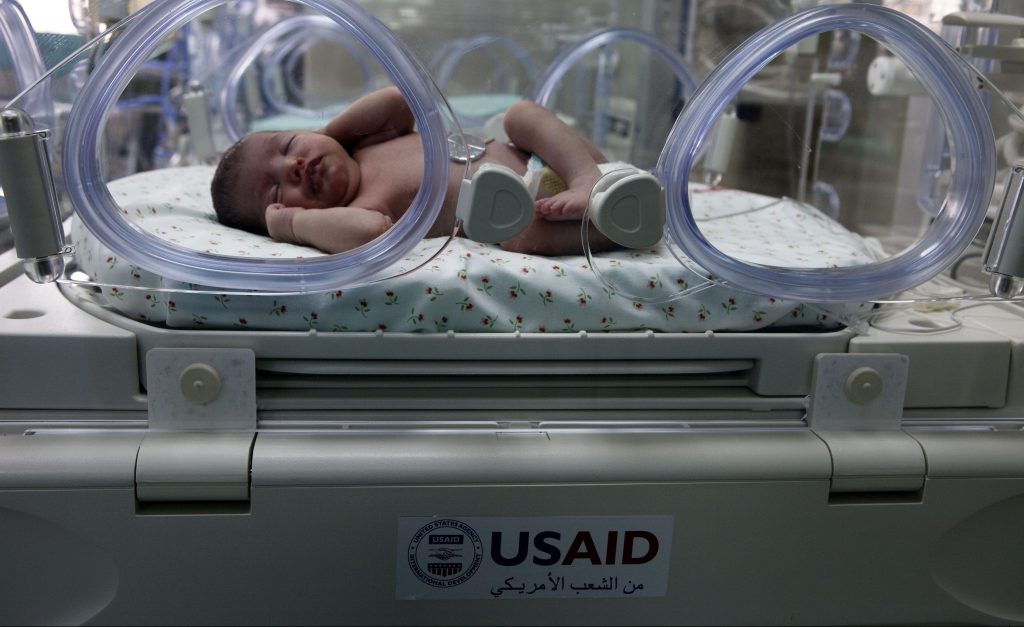
American aid funds hospital equipment like this incubator.
Just as ensuring the security of Israel is a vital American interest, so is restoring and maintaining robust US assistance benefiting the Palestinian people through both bilateral aid, including cooperation with Palestinian security forces, and funding of the United Nations Relief and Works Agency (UNRWA).
Subject to considerable statutory limitations and congressional and executive oversight, US assistance benefitting Palestinians has served as an essential component of efforts by previous administrations of both parties to enhance security and quality of life for both Palestinians and Israelis. This long-standing American consensus mirrors Israeli security authorities’ own consistent backing for such US assistance – and their repeated warnings that the Trump administration’s cut-off of such aid has undermined Israeli security by exacerbating Gaza’s humanitarian crisis and further destabilizing the West Bank.
US assistance benefitting the Palestinian people impacts the security not just of Israel, but of the entire immediate region. This is especially true when it comes to the region-wide operations of UNRWA, to which the United States has typically provided around a quarter of the agency’s operating budget. UNRWA provides vital humanitarian and developments services to Palestinian refugees, including but not limited to primary and vocational education, health care and emergency relief. UNRWA operates not just within the West Bank and Gaza, but in neighboring countries which rely upon its efforts to assist millions of Palestinians whom they would otherwise be unable to adequately provide for. Recipients of UNRWA services include more than two million Palestinian refugees living in Israel’s neighbor Jordan and nearly half a million Palestinian refugees impacted by the horrific conflict in Syria.
The direct relationship between US assistance to Palestinians and the security and stability of Israel and its neighbors is undeniable, but far from the only reason Congress and previous administrations have consistently provided such aid. In addition to the strategic necessity for generous US assistance to vulnerable populations, there is a clear moral imperative to do what we prudently can to help others in need. US assistance to Palestinians is, in addition to its purely practical benefits, a means of recognizing their dignity and standing as individuals and as a people. It is an acknowledgment that their suffering is real, and a reiteration of our commitment to help end the conflict at the root of it.
